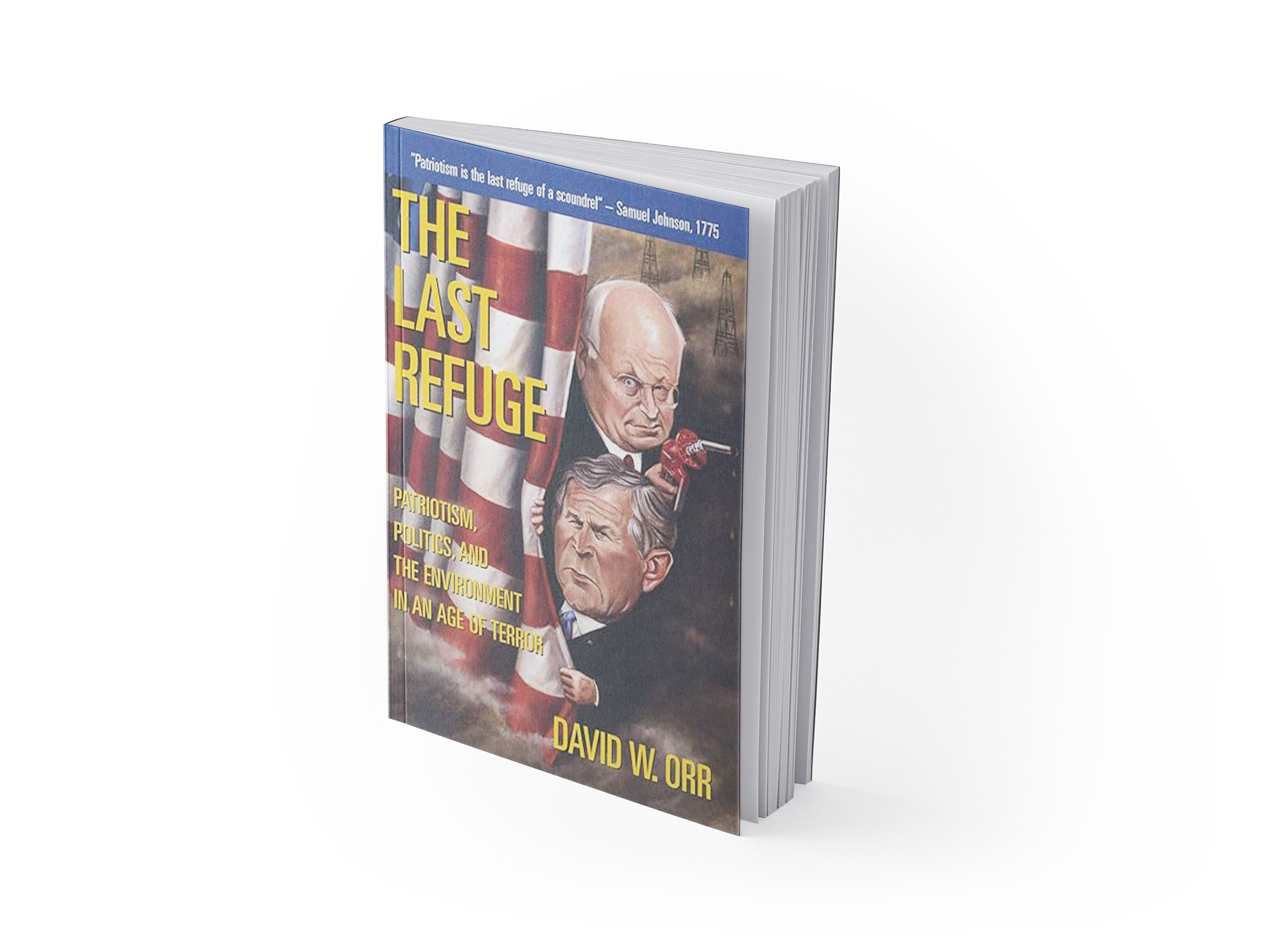Reclaiming Patriotism for Climate Action
Chillingly relevant in 2025, Orr’s 2005 political and environmental warning also offers a powerful vision of hope.

The Last Refuge: Patriotism, Politics, and the Environment in an Age of Terror.
David W. Orr. Island Press, 2005, 192 pages
Two decades after its publication, David W. Orr’s The Last Refuge: Patriotism, Politics, and the Environment in an Age of Terror reads with an unsettling freshness.
It is remarkable that a book written in the early 2000s still speaks so directly to the political and ecological crises of today. What Orr warned then about governmental neglect, public apathy, and the manipulation of truth in environmental discourse has only grown louder in our current era of polarisation and climate denial.
It is remarkable that a book written in the early 2000s still speaks so directly to the political and ecological crises of today.
As a prominent environmentalist and scholar, Orr opens with a sharp critique of American society at the time of its publication. He believed they were entering an era of citizens saturated with media yet strikingly uninformed about politics. It’s an observation that feels ripped from today’s headlines, as misinformation spreads with viral ease and complex political discourse is reduced to sound bites and outrage.
At the heart of The Last Refuge is Orr’s conviction that we do not merely face an environmental crisis – we face a political one. Our democratic institutions have faltered, leaving power concentrated in the hands of a few, often aligned with corporate or ideological interests opposed to environmental progress. The solution to this must be a reconnection of citizens with the political process so they understand their abilities to make a change.
Reading this in 2025, against the backdrop of climate programmes cuts under the Trump administration and continuing battles over environmental regulations, it is hard not to see Orr’s line of reasoning. The frustrations he voiced then and yet not being heard, echo the despair of climate advocates today. His account of a White House meeting following the attacks of 9/11 where staff listened politely but without interest is painfully familiar to anyone who has tried to advance climate policy in the current hostile political environment.
But there are glimmers of hope throughout the book. Orr frames the work of climate action as “The Great Work”. To him, this is a moral, civic, and even patriotic duty akin to the great struggles of past generations, whether against slavery or fascism. He insists that environmentalism must reclaim words like patriotism from those who have weaponised them for narrow ends and instead use them to inspire a collective project of building a just and habitable future. “Political reform,” he reminds us, “requires an active, engaged, and sometimes enraged citizenry.”
Orr frames the work of climate action as “The Great Work”. To him, this is a moral, civic, and even patriotic duty akin to the great struggles of past generations, whether against slavery or fascism.
The urgency of his call is heightened by his pointed critique of Bjørn Lomborg’s The Skeptical Environmentalist, which Orr states as ill-informed and dangerously dismissive of climate science. That book, widely publicised at the time, gave cover to far-right efforts to undermine climate action. Orr’s rebuttal remains vital reading, especially in an era when denialism and delay still hold sway in parts of the political establishment. It’s worth asking whether Lomborg’s book still circulates widely in American libraries, while, curiously, The Last Refuge itself was stamped as withdrawn from the Palo Alto City Library, California, and somehow ended up in a second-hand bookstore in Edinburgh, Scotland, where I picked it up. One cannot help but wonder if such decisions are linked, however indirectly, to the broader rollback of climate education happening across America thanks to the latest administration.
What gives The Last Refuge enduring value is not only its prescience but also its tone. Orr writes with frustration, yes, but also with passion and stubborn hope. His words are less about winning policy arguments than about awakening civic imagination. He acknowledges the difficulty of meaningful change within a system resistant to human progress, but he insists on the necessity of trying.
The vision of “The Great Work” still stands as an invitation. In a fractured environmental movement, in a distracted political culture, and in a world edging closer to climate tipping points, The Last Refuge is not just a book from the past. It is a summons to the present.
